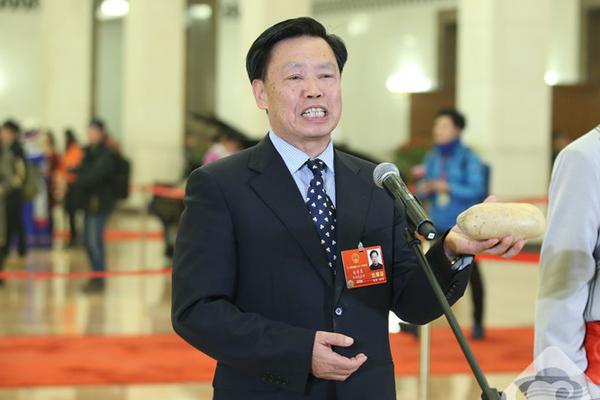
Short-term memory, long-term memory. Cognitive psychology regards memory as the process of coding, storing and extracting input information by the human brain. Memory is divided into three systems: instantaneous memory, short-term memory and long-term memory, which is based on the different ways of encoding, storing and extracting information, as well as the different length of information storage time.
What are the three memory systems: memory is also regarded as the process of the human brain encoding, storing and extracting input information, and according to the different ways of coding, storing and extracting information, as well as the different length of information storage time, memory is divided into instantaneous memory, short-term memory and long-term memory. A system.
What are the three memory systems? According to the different ways of encoding, storing and extracting information, and the different length of information storage time, memory is divided into three systems: instantaneous memory, short-term memory and long-term memory.
The three stages of memory are sensory memory, short-term memory and long-term memory. Sensory memory: Sensory memory refers to the information we receive through various sensory organs, such as vision, hearing, touch, taste and smell.
What are the three memory systems? According to the different ways of coding, storage and extraction of information, and the different length of information storage time, memory is divided into instantaneous memory, short-term memory and long-term memory. Remember the three systems.
The coding method of instantaneous memory, that is, the way instantaneous memory remembers information, is the image of external stimuli. Because the information of instantaneous memory is first registered in the sensory channel in the form of sensory images, instantaneous memory has a distinct image. The capacity of instantaneous memory is large, but the retention time is very short.
Perception is the cognitive process of giving meaning through information. ( 2) Working memory. It is the memory of processing and encoding information in the human brain within a minute. The holding time is about 5 seconds to 1 minute. Short-term memory also includes direct memory and working memory.

Weber's score), which is only applicable to medium-intensity stimuli, which is different from the Weber's score of sensory organs (2) Fechner's Law: 1860, using the differential threshold as the unit of sensation, a stimulus was measured. The difference threshold contained is believed to be the psychological intensity caused by this stimulus.
The concept of memory is the psychological process of accumulating, preserving and extracting individual experience in the mind.From storing into the brain to extracting and applying again, this complete process is collectively called memory.
Long-term memory refers to the memory maintained for more than a minute after external stimuli appear in a very short time. Features: The capacity of memory is unlimited, whether it is the type or quantity of information. Coding Semantic coding: Use words to process information and organize coding according to the meaning of the material.
Memory and memory process Definition: It is the reaction of past experience in the mind. Past experience refers to the perception of things, thinking about problems, the emotional experience caused by things, and the actions that have been carried out in the past. Function: It is the root of wisdom and the cornerstone of psychological development.
OKX download-APP, download it now, new users will receive a novice gift pack.
Short-term memory, long-term memory. Cognitive psychology regards memory as the process of coding, storing and extracting input information by the human brain. Memory is divided into three systems: instantaneous memory, short-term memory and long-term memory, which is based on the different ways of encoding, storing and extracting information, as well as the different length of information storage time.
What are the three memory systems: memory is also regarded as the process of the human brain encoding, storing and extracting input information, and according to the different ways of coding, storing and extracting information, as well as the different length of information storage time, memory is divided into instantaneous memory, short-term memory and long-term memory. A system.
What are the three memory systems? According to the different ways of encoding, storing and extracting information, and the different length of information storage time, memory is divided into three systems: instantaneous memory, short-term memory and long-term memory.
The three stages of memory are sensory memory, short-term memory and long-term memory. Sensory memory: Sensory memory refers to the information we receive through various sensory organs, such as vision, hearing, touch, taste and smell.
What are the three memory systems? According to the different ways of coding, storage and extraction of information, and the different length of information storage time, memory is divided into instantaneous memory, short-term memory and long-term memory. Remember the three systems.
The coding method of instantaneous memory, that is, the way instantaneous memory remembers information, is the image of external stimuli. Because the information of instantaneous memory is first registered in the sensory channel in the form of sensory images, instantaneous memory has a distinct image. The capacity of instantaneous memory is large, but the retention time is very short.
Perception is the cognitive process of giving meaning through information. ( 2) Working memory. It is the memory of processing and encoding information in the human brain within a minute. The holding time is about 5 seconds to 1 minute. Short-term memory also includes direct memory and working memory.

Weber's score), which is only applicable to medium-intensity stimuli, which is different from the Weber's score of sensory organs (2) Fechner's Law: 1860, using the differential threshold as the unit of sensation, a stimulus was measured. The difference threshold contained is believed to be the psychological intensity caused by this stimulus.
The concept of memory is the psychological process of accumulating, preserving and extracting individual experience in the mind.From storing into the brain to extracting and applying again, this complete process is collectively called memory.
Long-term memory refers to the memory maintained for more than a minute after external stimuli appear in a very short time. Features: The capacity of memory is unlimited, whether it is the type or quantity of information. Coding Semantic coding: Use words to process information and organize coding according to the meaning of the material.
Memory and memory process Definition: It is the reaction of past experience in the mind. Past experience refers to the perception of things, thinking about problems, the emotional experience caused by things, and the actions that have been carried out in the past. Function: It is the root of wisdom and the cornerstone of psychological development.
Binance app download Play Store
author: 2025-01-23 00:06 OKX Wallet login
OKX Wallet login
456.83MB
Check Binance US
Binance US
489.79MB
Check OKX Wallet Sign up
OKX Wallet Sign up
314.26MB
Check Binance login
Binance login
967.57MB
Check Binance login
Binance login
812.95MB
Check Binance login
Binance login
795.61MB
Check Okx app download
Okx app download
777.42MB
Check Binance US
Binance US
653.84MB
Check OKX Wallet login
OKX Wallet login
311.28MB
Check Binance download APK
Binance download APK
333.16MB
Check OKX Wallet download
OKX Wallet download
345.22MB
Check Binance download APK
Binance download APK
627.97MB
Check Binance download Android
Binance download Android
679.58MB
Check Binance wallet
Binance wallet
948.56MB
Check Binance download APK
Binance download APK
839.54MB
Check OKX app
OKX app
197.45MB
Check Binance wikipedia
Binance wikipedia
179.46MB
Check Binance download iOS
Binance download iOS
691.61MB
Check Binance download
Binance download
695.83MB
Check Binance app
Binance app
183.93MB
Check OKX Wallet
OKX Wallet
386.71MB
Check okx.com login
okx.com login
956.94MB
Check OKX Wallet app download for Android
OKX Wallet app download for Android
327.77MB
Check Binance download APK
Binance download APK
838.58MB
Check Binance download
Binance download
448.53MB
Check OKX Wallet apk download latest version
OKX Wallet apk download latest version
214.21MB
Check Binance download iOS
Binance download iOS
567.48MB
Check OKX Wallet apk download
OKX Wallet apk download
269.96MB
Check Okx app download
Okx app download
393.24MB
Check OKX Wallet app download for Android
OKX Wallet app download for Android
168.48MB
Check Binance download
Binance download
233.31MB
Check Binance login
Binance login
958.22MB
Check Binance app
Binance app
524.32MB
Check Binance login
Binance login
183.78MB
Check OKX download
OKX download
281.61MB
Check OKX Wallet download
OKX Wallet download
173.63MB
Check
Scan to install
OKX download to discover more
Netizen comments More
2223 疾雨暴风网
2025-01-23 01:35 recommend
2176 六趣轮回网
2025-01-23 01:03 recommend
2604 讪皮讪脸网
2025-01-23 00:53 recommend
2041 人强马壮网
2025-01-23 00:45 recommend
1191 噬脐何及网
2025-01-22 23:50 recommend